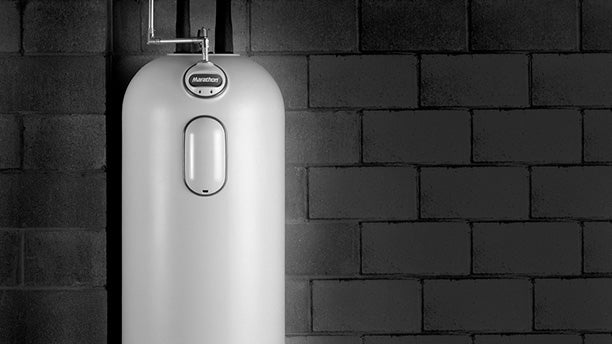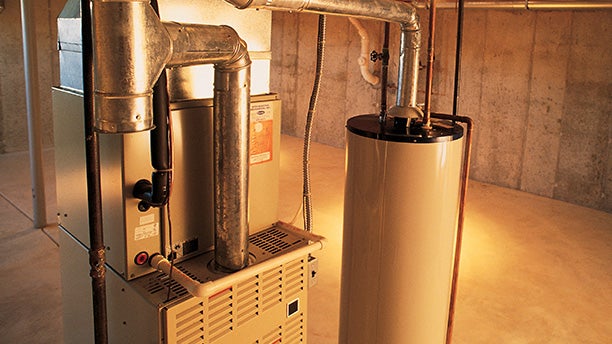Your Second-Largest Energy Consumer
Your water heater accounts for up to 18 percent of your home energy use, making it your second-largest energy user. If you are building a new home or replacing an old water heater, consider purchasing a high-efficiency replacement for your hot water needs.
There are two types of water heaters: gas and electric. Roughly 60 percent of homes in the United States use gas water heaters, which heat water using natural gas to generate the energy needed to heat water. Electric water heaters use coils inside the storage tank instead of fire.
Although gas may be slightly cheaper to operate, electric water heaters are the more energy-efficient option. Electric water heaters are also more flexible than other water heating appliances because they can be placed almost anywhere without requiring a minimum clearance. We will describe them in detail below.
Another available water heating option is a heat pump water heater. Many homeowners use heat pumps to heat and cool their homes more efficiently, but a heat pump can also be used to heat water, either as a stand-alone water heating system or in combination with a space conditioning system. Heat pump water heaters use electricity to move heat from one place to another instead of generating heat directly.
Do Your Research
Before making a decision on your new energy-efficient water heater, be sure to research the right kind for you and your family.
Sizing Your System
Heat Pump Water Heaters
Energy Cost Calculator
Electric Water Heating Rebate Program
United Power offers a special rebate program to members who purchase and install new electric water heaters in their homes or businesses. You can purchase an electric water heater from a licensed contractor (plumber or electrician) or local appliance or hardware store.
Electric Water Heater Rebates
Rebates effective Jan. 1, 2026
Electric Water Heaters:
Gas-to-electric conversion
- Fossil fuel to electric conversion — $100
Ground Source Heat Pump Desuperheater:
Rebate limited to one wired tank on two tank GSHP desuperheater configuration.
- $200
Rebate Details
Equipment Requirements:
- Minimum 40 gallons
- 240v only
- UEF ≥ 3.30 for Heat Pump Water Heater
- Tank water heaters only, tankless systems do not qualify
- No rebates will be provided for replacements of standard electric tanks with new standard electric tanks
- Rebates not applicable to new construction projects
Program Requirements:
- You must receive permanent electric service from United Power to qualify.
- Applications must be submitted within 90 days of installation.
- An invoice detailing equipment brand, model number, and itemized pricing for equipment and labor costs is required with rebate application.
- Two pictures: the first a close-up of the equipment faceplate label with model number, serial number, voltage, etc., and the second from several feet back for a full view of the installation.
- Submission of application does not guarantee rebate.
- Rebates of $150 or less are issued as a bill credit. Allow six to eight weeks for rebate processing.

Electric Water Heaters
Installing a new electric water heater is generally less expensive than replacing or installing a gas water heater. Electric water heaters have been designed to only heat water you need when you turn it on, resulting in less standby heat loss and more energy efficiency than gas water heaters, which burn constantly. They are more flexible because they require less space, and come in various sizes for both long term and immediate use.

Gas Water Heaters
Gas water heaters may be slightly cheaper to operate than electric water heaters due to the cost of natural gas. While being able to heat more water per hour than electric, they are also less energy efficient. Gas water heaters are constantly heating, which results in heat loss through the storage tank walls. Without proper maintenance, gas water heaters may also pose a significant safety risk, and are more expensive to replace.

